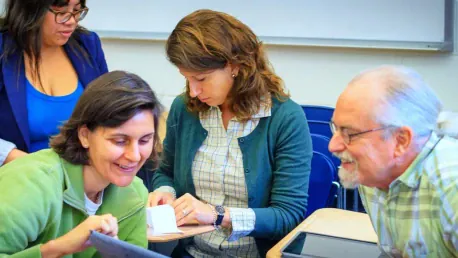The University of Santo Tomas Faculty Union (USTFU) finds itself in a tense standoff with the administration of the University of Santo Tomas (UST) over the release of their share of tuition hike proceeds. This ongoing conflict has reached a boiling point, prompting the union to seek the intervention of the Commission on Higher Education (CHEd) to resolve the issue. The controversy has financial implications for the faculty members, who argue that these funds should be distributed as part of their compensation package. Amid mounting tensions and repeated denials of their requests, the union is looking to CHEd to provide legal clarity and potentially pave the way to resolving this contentious issue.
The Core of the Dispute
At the heart of the dispute lies the partial release of the faculty members’ share of the tuition hike proceeds, which the faculty union argues should be allocated as part of their agreed compensation. Over the last four academic years, UST has collected substantial amounts from tuition increases, totaling PHP 129 million in AY 2020-2021, PHP 103 million in AY 2021-2022, PHP 128 million in AY 2022-2023, and PHP 214 million in AY 2023-2024. Of these amounts, the university set aside 70 percent each year for the faculty, translating to PHP 90 million, PHP 72 million, PHP 89 million, and PHP 149 million for those respective years.
Despite these considerable collections earmarked for the faculty, the requests from USTFU to release these funds have been repeatedly turned down by the UST administration. The refusal for partial release was first formalized on December 2, followed by another reiteration on December 17 by UST Rector Fr. Richard Ang, O.P. Fr. Ang has emphasized the necessity of following due procedure, which highlights the complexity of the situation. The union’s leadership remains determined to secure these funds, arguing that they rightfully belong to the faculty members as part of their compensation.
The Role of the Collective Bargaining Agreement
According to Fr. Ang, the release of faculty funds is strictly contingent upon the signing of a new collective bargaining agreement (CBA), which has been stalled due to unresolved disputes over crucial economic and health benefits. This condition underscores the administration’s cautious approach to mitigating legal and compliance risks associated with disbursing funds before the finalization of the CBA. The union had initially hoped for a partial release of PHP 50,000 for full-time academic staff, and up to PHP 25,000 for part-time teachers before Christmas, a request that was ultimately not fulfilled, leading to significant disappointment among faculty members.
The delay in releasing funds and the ongoing CBA negotiations have compounded the frustration among USTFU members, many of whom are in need of immediate financial relief. Despite these challenges, Fr. Ang assured that UST is dedicated to concluding the CBA negotiations expeditiously and fairly. However, the administration’s insistence on procedural adherence has intensified the urgency felt by the faculty union, leading them to seek further clarifications and intervention from CHEd to resolve the deadlock that has persisted for months.
USTFU’s Appeal to CHEd
In their pursuit of a resolution, USTFU President Emerito Gonzales sent a letter dated December 18, requesting CHEd to issue a legal opinion on the matter concerning the release of the faculty’s share of the tuition hike proceeds. The letter raised essential questions about the prerequisites for distributing these funds, including the need for completion of the CBA negotiations. It also sought clarity on whether certificates confirming compliance and intended use of these funds were required before any disbursement could be made.
The unresolved status of the CBA negotiations, which reportedly reached a deadlock on November 22, has visibly escalated concerns within the union. This deadlock, reported by USTFU negotiators, has left the union’s demands for compensation in a state of limbo. Fr. Ang, however, reassured that UST remains committed to resolving the CBA negotiations quickly and fairly, but the delay has heightened the urgency for intervention from CHEd to provide legal guidance on the union’s entitlements and the subsequent process for fund allocation.
Internal Discord and Union Unity
Amid the external conflict, internal discord has arisen within the USTFU itself, as some members have begun to question the claim of a deadlock by the union’s CBA negotiators. This skepticism has highlighted the need for unity within the union, with Gonzales underscoring the significance of collective strength in achieving their bargaining goals. In a letter dated December 19, Gonzales urged union members to maintain solidarity ahead of a critical general assembly scheduled for January 14, 2025. At this assembly, members were poised to vote on declaring an official deadlock with the UST administration, a move that could further escalate the conflict but potentially draw more attention to their grievances.
The USTFU board’s continued plea for immediate monetary relief serves to emphasize the frustration and urgency felt by its members, who have been awaiting the release of funds that they believe is rightfully theirs. The push for unity and the upcoming general assembly highlight the crucial next steps the union will take in its strategy to pressure the UST administration to heed their demands.
The Path Forward
The University of Santo Tomas Faculty Union (USTFU) is embroiled in a heated dispute with the administration of the University of Santo Tomas (UST) over the release of their allocated share from recent tuition hikes. This conflict, which has been simmering for some time, has now reached a critical juncture, compelling the union to call upon the Commission on Higher Education (CHEd) for intervention. The faculty members contend that these funds are a rightful part of their compensation package and are essential for their financial stability. As tensions escalate and their requests continue to be denied, the union is turning to CHEd for legal guidance and support. They hope that CHEd will help clarify the legalities involved and possibly mediate a resolution to this contentious issue, which has significant financial implications for the union members. The involvement of an external body like CHEd may be imperative to bringing about a fair and timely resolution in this ongoing dispute.









